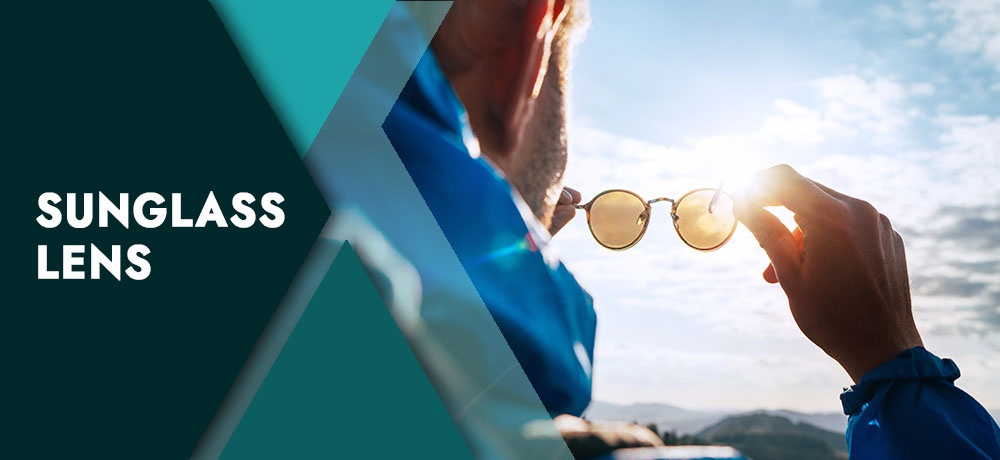Sunglass lens

When most of us see the sun rise, we call it the beginning of a beautiful day, but it's what we don't see, that we all need to guard against: the sun's ultra-violet rays. Throughout the year, just about everyone is exposed to these harmful, invisible, ultra-violet - or UV rays. Whether you are indoors, or outdoors, a child or an adult, exposure to the sun's UV rays can cause serious long-term damage to your eyes. Just as you should protect your skin from the sun's UV rays using sunscreen, you should protect your eyes with UV-filtering sunglass lenses. Most UV exposure comes from UVA and UVB rays. These types of UV rays are absorbed by several structures in the eye, and can contribute to the development of many short-term, and long-term eye conditions. No matter how dark, or what color the lenses are, certain types of sunglasses do not completely protect your eyes from UVA and UVB rays. Wearing sunglasses without the right kind of UV protection, can actually do more harm than if you didn't wear any protection at all. Because sunglasses dilate the eyes, wearing the wrong kind can actually allow more harmful UV rays to enter into the eye. Most eye care professionals will prescribe 100% UV protection against the sun's damaging effects. If you choose to purchase over-the-counter sunglasses with the 'UV Protection' label, it's important to make sure that the lenses block at least 60% of UVA and 70% of UVB rays. Your eye care professional can provide you with complete UV-protected sunglasses in a variety of options, including: Solid Tints Gradient Tints Polarization and Anti-Glare coating. No matter which type of sunglasses best fit your lifestyle, wearing 100% UV protection on your eyes is the best way to enjoy beautiful, sunny days for years to come.